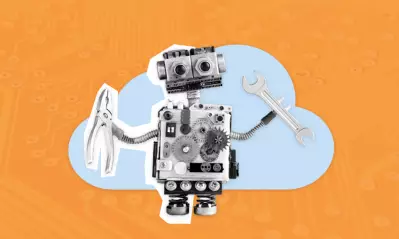Articles > Information Technology > Information technology skills and specialties
Information technology skills and specialties

Written by Michael Feder

Reviewed by Kathryn Uhles, MIS, MSP, Dean, College of Business and IT

Information technology (IT) refers to the use of computers and other devices to generate, process, protect or exchange any form of electronic data. With the way technology permeates every corner of our world, almost all industries require some IT knowledge. What skills do IT professionals need and what IT specialties are available to students?
How important are Information technology skills?
Careers for graduates with information technology skills are among the most sought after. This field is projected to grow from 2023 to 2033, according to the U.S. Bureau of Labor Statistics (BLS), with each year, on average.
BLS Occupational Employment Projections, 2022-2032 is published by the U.S. Bureau of Labor Statistics. This data reflects BLS’ projections of national (not local) conditions. These data points are not specific to °®¶ą´«Ă˝ students or graduates.
As major life decisions go, choosing a college path is one of the most important. This decision can set the trajectory for a graduate's entire life — what they do, where they work, and even where they live. At the same time, choosing a college degree program also has immediate implications that are just as important, like course load, professors, hands-on experience and career outlook. In other words, choosing the right degree means discovering one that is enjoyable to both learn about and work in.
For those who think a career in information technology might be a good fit, here are some factors to understand about studying IT.
What do IT students study?
Students interested in information technology might wonder what exactly they’ll be studying and what information technology skills they will learn. Students explore the critical thinking behind some of the most common and complex technological decisions of our day. They spend their time digging into hands-on experiences that help make the digital world turn. Information technology students have a variety of specializations to choose from, which is what makes this degree so popular. More than earned computer and information technology degrees in the U.S. in the 2020 to 2021 school year alone.
Students who decide to join their ranks can study topics such as:
- Cybersecurity
- Network administration
- Programming languages
- Algorithm design
- Web and applications development
- Information systems management
- Computer applications
- Computer network management
- Hardware and software setup
- Artificial intelligence
- Animation, video graphics and special effects
- Computer service
- Information security
As the world becomes more digitally connected, the diversity of topics and benefits that students gain from this field of study continues to grow. IT graduates are the pulse of some of the world’s most fascinating technological advancements.
Benefits of studying IT and learning information technology skills
Studying IT can provide benefits for students and graduates, including:Â
- Building a diverse resumé with skills-aligned learning. Technology students learn in-demand information technology skills that can apply to different industries.
- Discovering the key principles of system analysis. Studying information technology provides the knowledge for implementing effective information systems.
- Designing cloud infrastructures. IT students can fill their digital toolboxes with industry best practices that improve cloud and network infrastructures.Â
- Implementing cybersecurity solutions. Information technology students learn how to resolve and prevent various computer and network security threats.Â
- Developing key database models. IT students create effective and efficient processes for the storage and retrieval of data.
- Designing application processes. An IT degree teaches how to evaluate, design and implement application software.
Acquiring these valuable internet technology skills helps IT graduates thrive in most job markets. Alongside opportunities to specialize and enhance their skills, that’s part of what makes information technology a strong choice of academic study and career path for many people.
Further, professionals in all computer and math occupations — including information technology — earned an between , as of May 2023, according to the U.S. Bureau of Labor Statistics.
Salary ranges are not specific to students or graduates of °®¶ą´«Ă˝. Actual outcomes vary based on multiple factors, including prior work experience, geographic location and other factors specific to the individual. °®¶ą´«Ă˝ does not guarantee employment, salary level or career advancement. BLS data is geographically based. Information for a specific state/city can be researched on the BLS website.
Five popular specialties for IT students
Combining technological expertise with business and communications skills, IT grads can work in a variety of industries, including healthcare, business, education and finance. Students studying IT can explore specializations that help them gain the information technology skills needed to stand out in the tech industry. Here are some of the specializations in the highest demand by employers.Â
Data Analytics
Data analytics is the practice of evaluating data to help make informed decisions. Since the process can be applied to any industry — as long as businesses collect data, they will always need to analyze it — these IT graduates often have very diverse career options. Those looking toward a career in data analytics might consider pursuing a Bachelor of Science in Data Science degree or some kind of IT degree with a related specialization.
Cybersecurity
Cybersecurity and network security are subareas of IT that focus on protecting data, preventing security breaches, improving regulatory compliance and maintaining a stable business. Data is one of a company’s most valuable resources, which means cyberattacks can be much more common and devastating than the average person might think. Those interested in a career in this field should pursue a bachelor's degree in cybersecurity for those specific skills. As of May 2024, information security analysts earned between , according to BLS.
Cloud engineering
With more employees working remotely and e-commerce on the rise, cloud computing and cloud technology have become the linchpin for business growth. Cloud engineers need to be critical thinkers and problem-solvers, on top of their expertise with SaaS (Software-as-a-Service), IaaS (Infrastructure-as-a-Service) and PaaS (Platform-as-a-Service) technologies and solutions.
Software development
Software developers create, design, implement and support three types of software: systems, programming and applications. As of May 2024, software developers earned between , according to BLS.
In addition to their information technology skills, software developers must be good communicators and passionate team players. Because development also includes support and optimization, software developers also need to be receptive to critical feedback.
Network administration
IT graduates who enjoy getting in the trenches with both hardware and software may enjoy a career as a network administrator. Planning, implementing, optimizing — these are all ways network admins keep computer systems running smoothly. As of May 2024, network and computer systems administrators earned between , according to BLS.Â
Along with skills in virtual desktops, software installation and protocol management, network administration relies on IT admins who can troubleshoot problems and support users in a clear, concise and kind manner.
Learn information technology skills online
If learning information technology skills interests you, °®¶ą´«Ă˝ offers online information technology programs, including a bachelor’s degree in data science, an associate degree in information technology, a bachelor’s degree in computer science, a bachelor’s in cybersecurity, and an advanced cybersecurity certificate.
Contact °®¶ą´«Ă˝ for more information.

ABOUT THE AUTHOR
A graduate of Johns Hopkins University and its Writing Seminars program and winner of the Stephen A. Dixon Literary Prize, Michael Feder brings an eye for detail and a passion for research to every article he writes. His academic and professional background includes experience in marketing, content development, script writing and SEO. Today, he works as a multimedia specialist at °®¶ą´«Ă˝ where he covers a variety of topics ranging from healthcare to IT.

ABOUT THE REVIEWER
Currently Dean of the College of Business and Information Technology, Kathryn Uhles has served °®¶ą´«Ă˝ in a variety of roles since 2006. Prior to joining °®¶ą´«Ă˝, Kathryn taught fifth grade to underprivileged youth in Phoenix.
This article has been vetted by °®¶ą´«Ă˝'s editorial advisory committee.Â
Read more about our editorial process.
Get your free IT Program Guide
Learn how 100% of our IT degree and certificate programs align with career-relevant skills.
Get your free IT program guide. Please enter your first and last name.
Thank you
Download your pdf guide now. Or access the link in our email.

